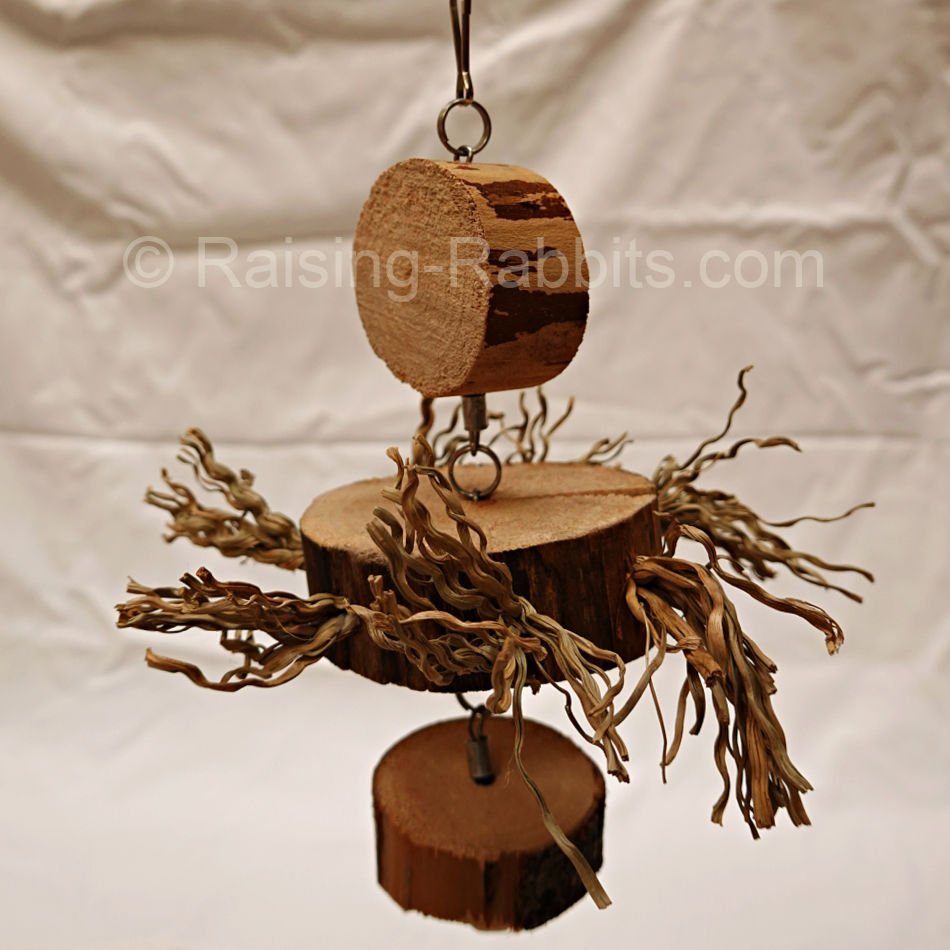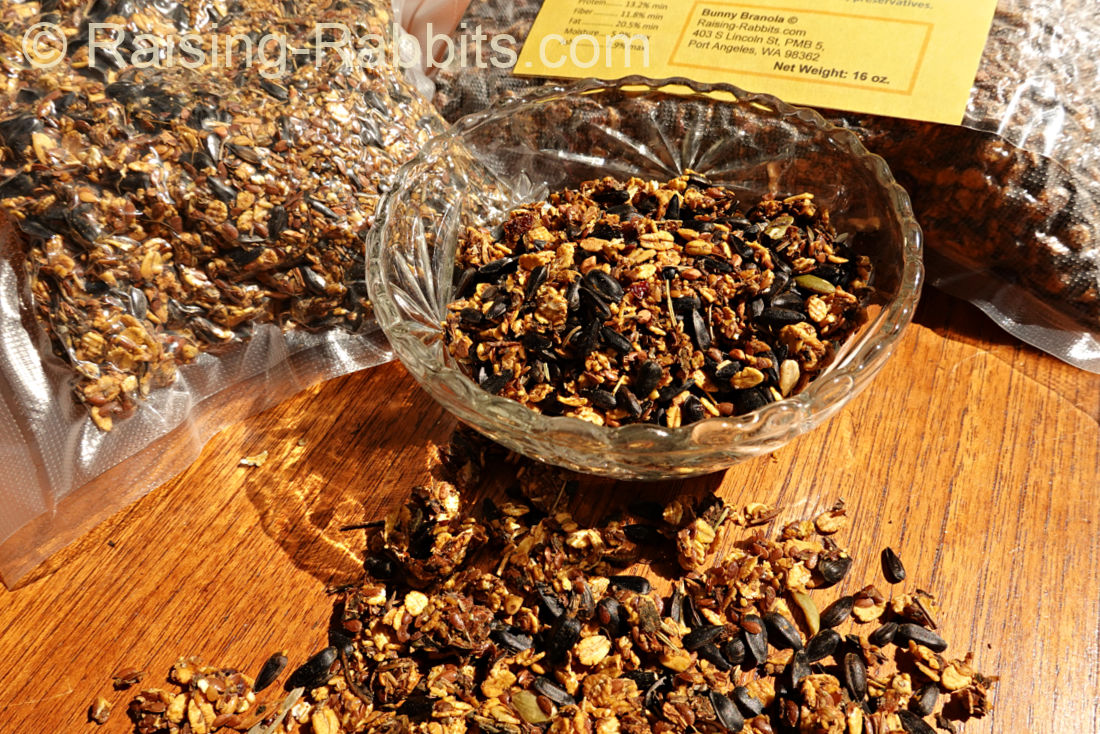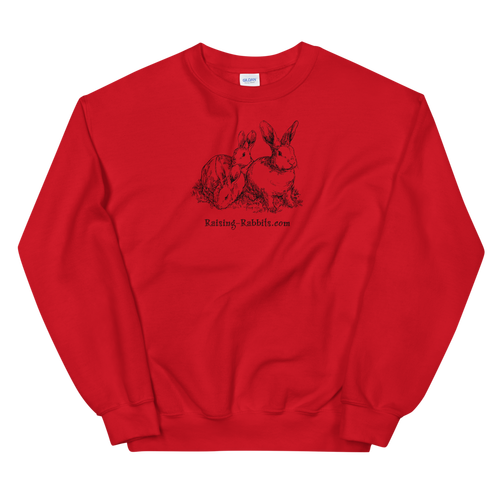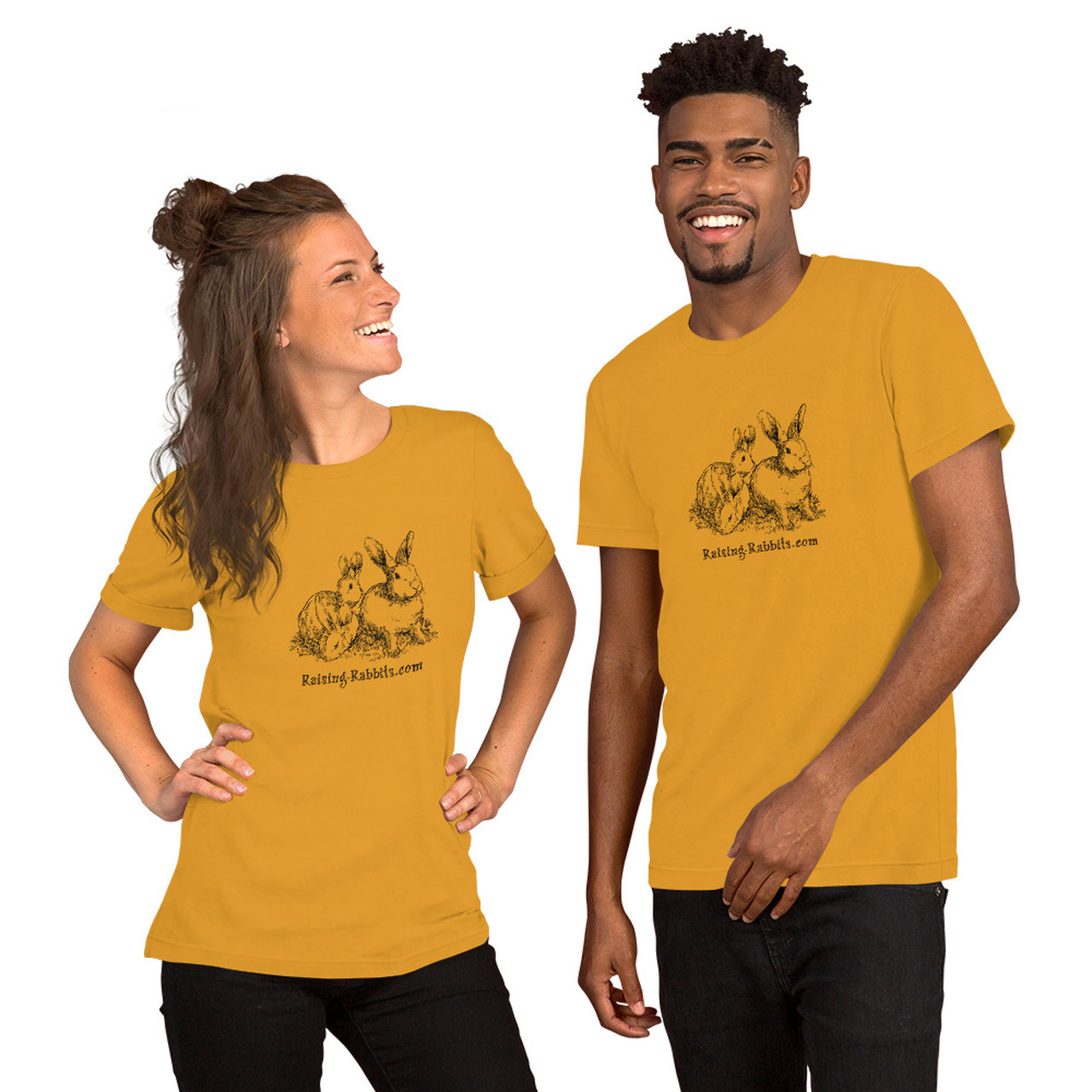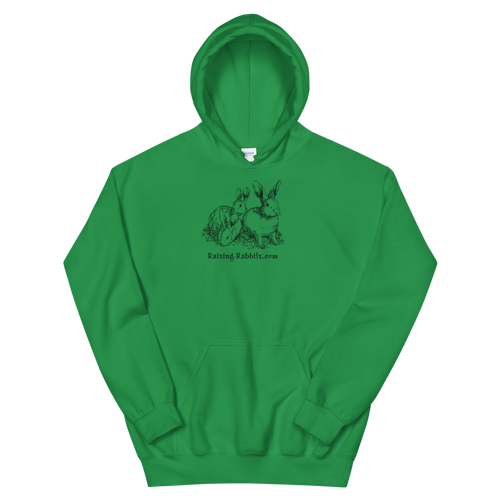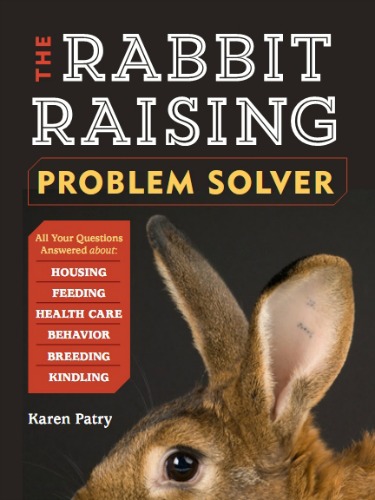Snuffles or not?
(Anon)
I got a doe around 3 months ago (5 months old at the time).
I noticed she was sneezing lots, eyes were clear and nose was only slightly damp at times, although after a sneezing fit I've seen a green ball of mucous twice.
Vet checked her out, eyes clear, chest clear, no temperature, nose only slight clear dampness. Was told maybe allergies. I have 9 other rabbits.
Doe has had a litter of 6 who are around 6 weeks old. I notice now that 4 of the babies have matted fur under the eyes. I'm now wondering if the doe has a very mild case and has passed it on to the babies?
I did take her back to the vets recently for another check, she said that if it was snuffles that she would have shown more symptoms by now or would have infected another rabbit?
Is it possible to have a mild case? Would she have shown more symptoms by now? Would other rabbits have been infected by now? Why are the babies eyes like this?
Any help appreciated, thank you.
***** Karen Sez *****
Sorry about the health challenges, Anon.
It is indeed possible for a rabbit to have a "light" case of pasteurellosis. This would occur if the immune system is strong enough to control the infection, but not strong enough to eradicate it. So, every time the rabbit undergoes stress, say, pregnancy, lactation, dogs barking, a thunderstorm, she may tend to come down with stronger symptoms. Did she tend to sneeze worse while she was raising her kits?
I'd also be very interested in knowing the vaccination status of your doe. (See Bunny Vac page.) Vaccination with the Bunny Vac can be used to eliminate symptoms in some sick rabbits. This is called "off-label" use, and this might be a good thing for a sneezing pet rabbit.
But it is horrible in a show rabbitry, because the rabbit manager will have no idea whether or not the rabbit's immune system is worth a plugged nickel. It is so tempting to think one is protecting the rabbits through vaccination, not realizing that vaccinations are not fool-proof, and indeed come with a whole set of other problems. (See the Bunny-vac link above.)
If you simply breed for health in the first place, you'll get to a point where not a single rabbit in your herd will ever need a pasteurella vaccine. I know that for a fact from hard-won (and grateful) experience.
The likelihood of immune system dysfunction in the form of allergies is very low in unvaccinated rabbits. But perhaps you know for a fact the animal was not vaccinated? I still wanted to mention the issue for the benefit of others who will come along later and read this.
Folks, if you breed for show or sell ANY rabbits to the public, ever, do yourself and your customers a favor and do not vaccinate against Pasteurellosis. If you have a sneezing pet rabbit, the Bunny Vac might help your bunny (but it also might not--at least 10% of bunnies will fail to respond with antibodies).
So, what do you do now?
Take the rabbit BACK to the vet and ask for a culture and sensitivity of the respiratory tract secretions. Get a proper diagnosis.
Perhaps the doe has Bordetellosis (symptoms are sometimes hard to tell apart from those of Pasteurellosis). If so, you can much more easily treat, usually, including the babies.
If the doe cultures P. multocida-positive, as I fear might be the case, I would suggest not using her for breeding any longer. Plus, don't use and don't sell the babies with crusty eyes. But keep any babies who stay symptom-free, because these will be the animals with the desirable strong immune systems.
Lastly, your vet could use a copy of Rabbit Raising Problem Solver ... Just sayin'!
Comments for Snuffles or not?
|
||
|
||
|
||
|
||
|
||
|
||
|
Click here to add your own comments Join in and write your own page! It's easy to do. How? Simply click here to return to Comments. |
Double-Value Guarantee
Our policy is to always OVER-deliver
on value,
which is why your purchase is fully covered by our
Double-Value
Guarantee.
Go ahead - take any of our e-books for a test drive. Peruse our detailed informational and educational e-books. Examine our plans for building rabbit cages, runs, or metal or PVC hutch frames. Check out the Rabbit Husbandry info e-books.
If you aren't completely satisfied that your e-book purchase is worth at least double, triple or even quadruple the price you paid, just drop us a note within 45 days, and we'll refund you the entire cost. That's our Double-Value Guarantee.
Note: When you purchase your
e-books, they will be in PDF format, so you can download them to any device that
supports PDF format. We advise making a back-up copy to a drive or cloud
account. If the books are lost, you can also purchase another copy from Raising-Rabbits.
